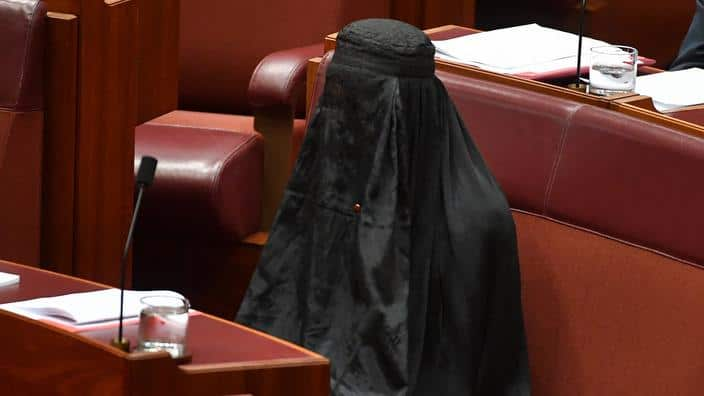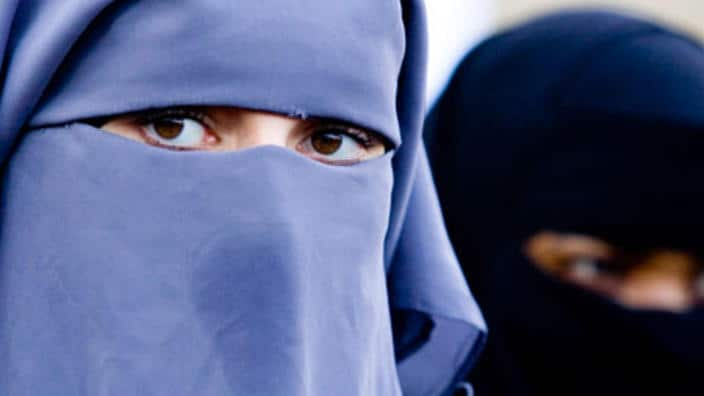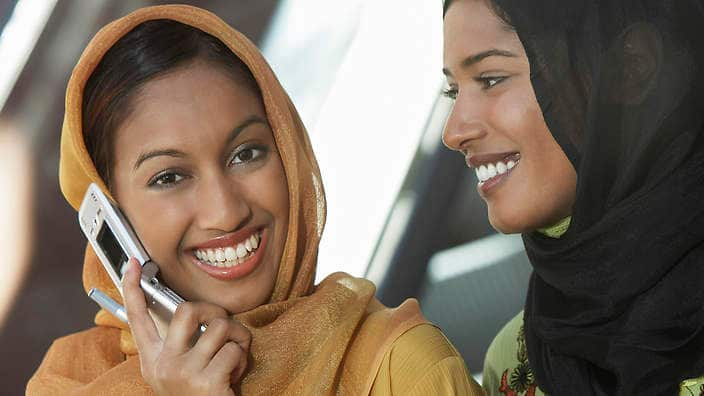Justice Christopher Beale ordered the woman to remove the garment, which covers much of a woman's face except her eyes, or remain outside.
"I require anybody who comes into the court - and all are welcome - but anybody who comes into the court, for their face to be uncovered," Justice Beale said.
Vice-President of the Islamic Council of Victoria, Adel Salman, said Justice Beale's decision was unreasonable and a breach of her human rights, particularly as she was not giving evidence.
If there were concerns about a person’s identity, Mr Salman suggested a woman wearing a niqab or burqa could be asked to step into a private room and show her face to a female security member for verification.
What is the Burqa, Niqab and Hijab?
Burqa
The burqa (also spelled burka) is the most concealing of all Islamic veils: it covers the entire face and body, leaving just a mesh screen to see through.
Typically, a burqa is composed of many yards of light material pleated around a cap that fits over the top of the head, or a scarf over the face - save the eyes. This type of veil is cultural as well as religious.
It is worn over the usual daily clothing and removed when the woman returns to the household, out of the view of men that are not their husbands, fathers, brothers, uncles, sons and grandsons.
Originating in what is now Pakistan, it is more commonly associated with the Afghan chadri.
The full Afghan chadri covers the wearer's entire face except for a small region about the eyes, which is covered by a concealing net or grille.

Pauline Hanson wearing the burqa in parliament (AAP) Source: AAP
Niqab
The niqab is a veil for the face that leaves the area around the eyes clear. However, it may be worn with a separate eye veil. It is worn with an accompanying headscarf.
The niqab is most common in the Arab countries of the Persian Gulf such as Saudi Arabia, Yemen, Bahrain, Kuwait, Qatar, Oman, and the UAE. It is also common in Pakistan.
It is sometimes alleged that the face-veil was originally part of women's dress among certain classes in the Byzantine Empire and was adopted into Muslim culture during the Arab conquest of the Middle East.
The claimed rationale of the niqab comes from the Qur'an and Hadith.

The niqab is a veil for the face that leaves the area around the eyes clear. (File: AAP) Source: AAP
Hijab
A hijab is a scarf that covers the head and neck, but leaves the face uncovered. The Arabic word literally means curtain or cover.
Hijab is also the name for the requirement to dress modestly as many Muslims believe that the Islamic holy book, the Qur'an, and the collected traditions of the life of Muhammad, or hadith, require both men and women to dress and behave modestly in public.
However, this requirement has been interpreted in many different ways by Islamic scholars and Muslim communities.
However, this requirement has been interpreted in many different ways by Islamic scholars and Muslim communities.

A hijab is a scarf that covers the head and neck, but leaves the face uncovered. (AAP) Source: AAP